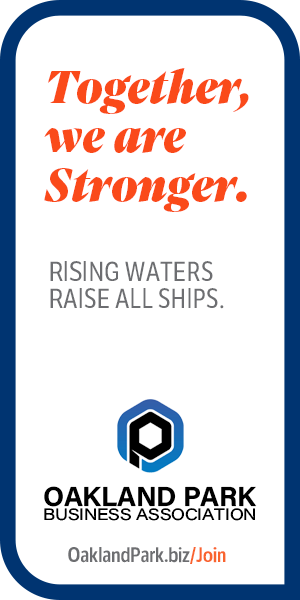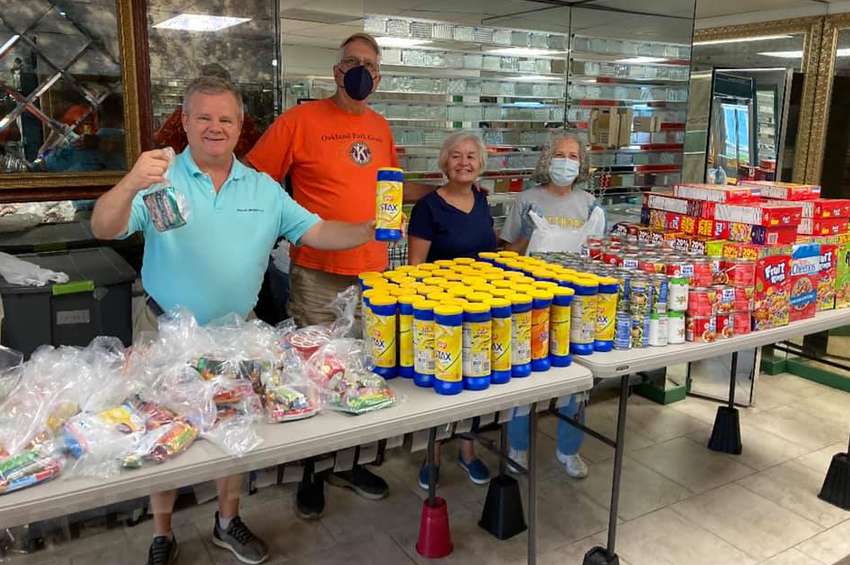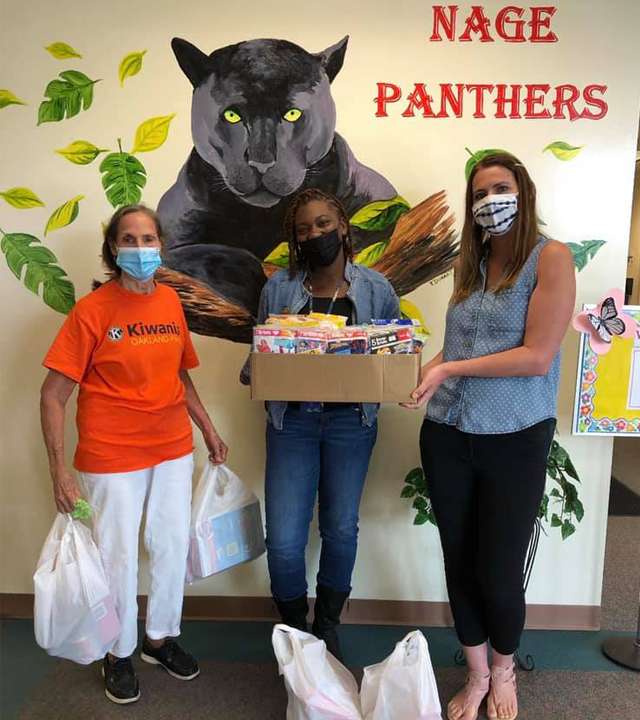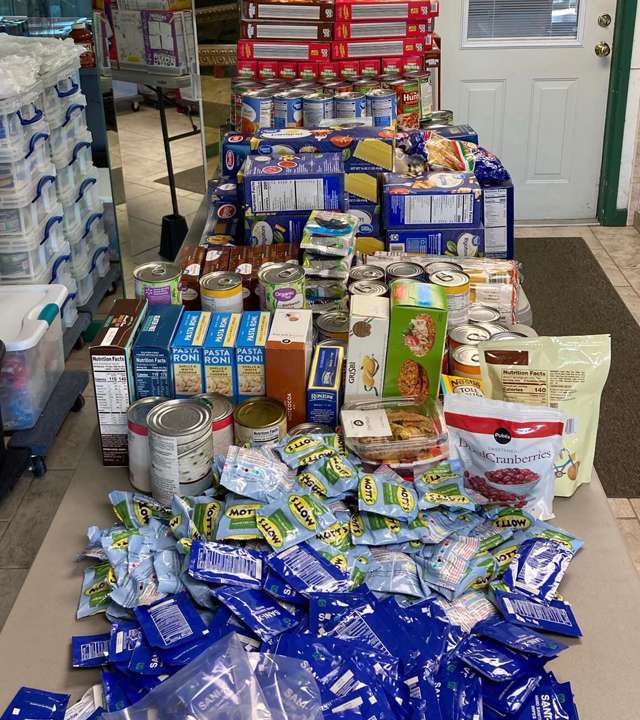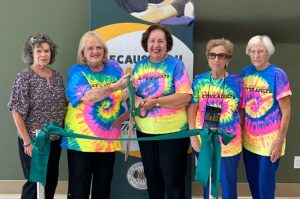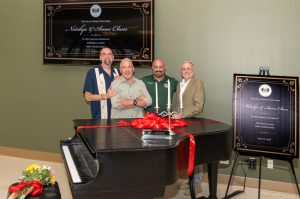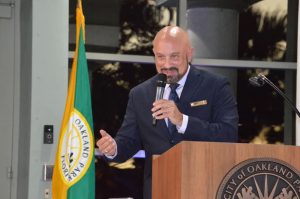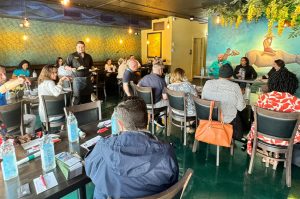


The Oakland Park Kiwanis do many meaningful things for the community, but one of their most impactful and needed programs is the Food Backpack Program. The program provides over 50 backpacks containing food for the weekend and beyond to local children and families in need each week.
While every Kiwanis club has many of the same programs, the Food Backpack Program actually originated in the Oakland Park club. It has been such a monumental success that the idea has since been embraced by multiple clubs – even ones that are out of state.
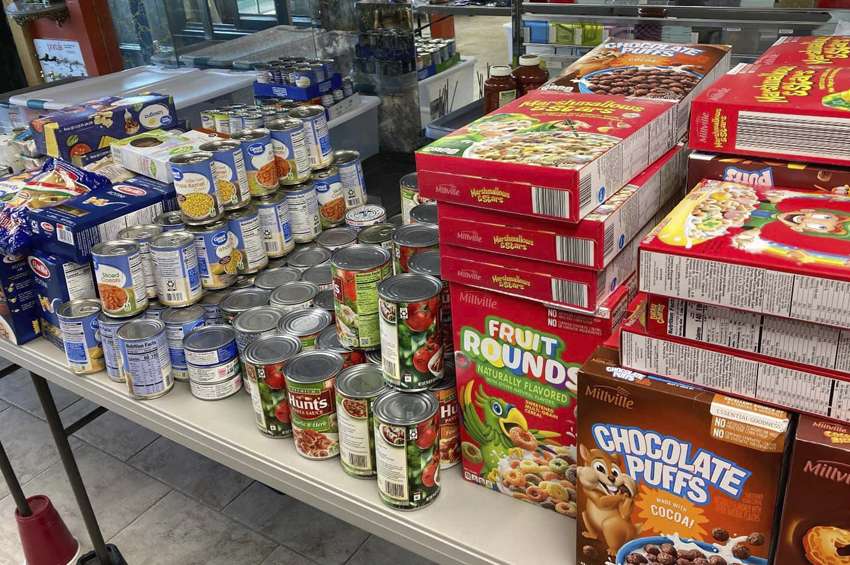
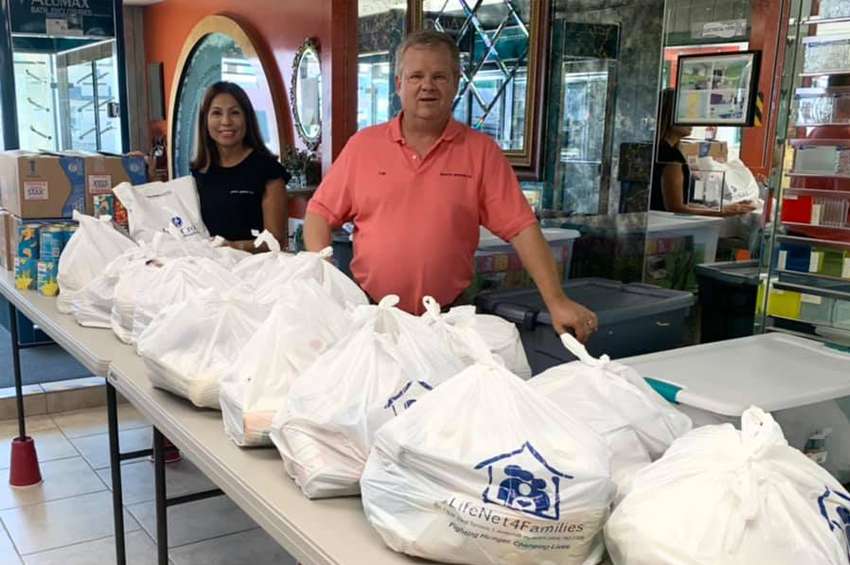
The Growth of the Food Backpack Program
The Food Backpack Program has been around for well over a decade, but it has continued to evolve to meet the needs of families in the community. The project started when club members reached out to Oakland Park’s four local elementary schools to see if they had any students who may not have enough to eat on the weekends. After giving it some thought, the guidance counselors at all four schools said yes, they did in fact have children who needed food assistance.
While the program was originally intended for children, it evolved into providing food for entire families in need. And, each backpack contains more than enough for just one weekend (depending on the size of the family, of course).
The Oakland Park Kiwanis Club didn’t stop with the four elementary schools, though. They later expanded by partnering with Northeast High School after their counselor said they also had students who could benefit from the program.
As if providing food to children in need at local schools wasn’t enough, the Kiwanis also provide 10 backpacks each week to the Light of the World Clinic in Oakland Park – a free clinic that provides healthcare services at little to no charge to qualifying low income and uninsured individuals.
It’s safe to say that every time there was demand, the Oakland Park Kiwanis rose to the occasion to make sure everyone’s needs were met.
Best of all, the recipients of the backpacks are able to remain anonymous. The club members don’t know the names, location, or family size of the recipients. They simply know that they’re helping to put food on the table of families who need it – and that’s all that matters.



An Inside Look at the Food Backpack Program Today
Unlike the Wilton Manors Kiwanis Club, the Oakland Park Kiwanis Club doesn’t have a clubhouse. They rely on the hospitality and willingness of their members and their businesses to carry out their operations.
When the former warehouse where the Food Backpack Program was held became unavailable a couple of years ago, Tom Blanski, the current Chair of the program and Owner of Manor Mirror Company off of Prospect Rd. and Dixie Hwy., stepped up to the plate.
Tom works hard to balance his business with the program. He tries to involve as many Kiwanians as possible in the program by getting different people to do each task. Some people shop for the food, some people pack and prepare the backpacks, and others distribute them. He has at least 12-15 people helping him each time. As of early March, the Kiwanis were distributing 54 backpacks each week.
Maria, Tom’s assistant, explains that “it’s amazing to help people and the kids. This [program] is the best for them. We’re going to continue to help all of the schools around the area if they need it, and we enjoy doing it.”
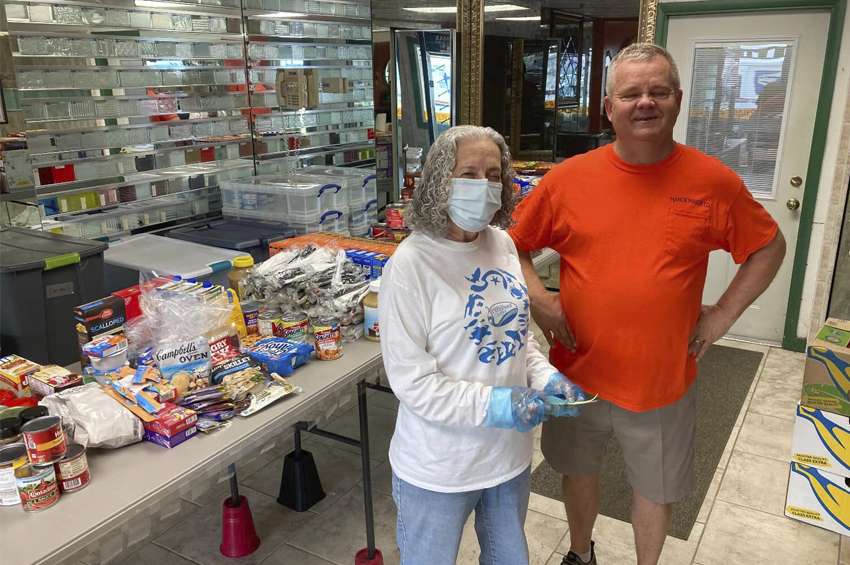
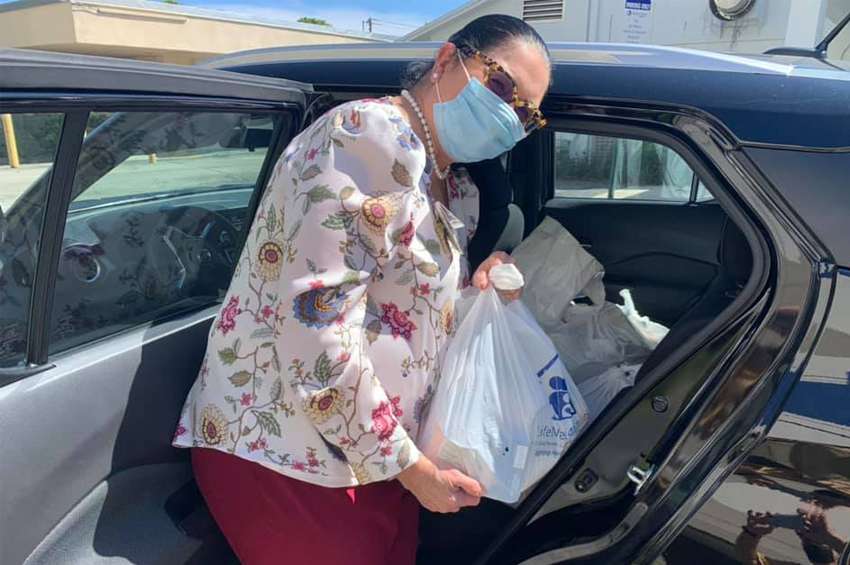
A Vision for the Future
It’s impossible to predict exactly what the future has in store. However, it seems as though the Kiwanis are ready to meet whatever demand comes their way.
According to Tom Blanski, “We never say no. If someone needs help and they ask us for help, we will help them… If the economy goes south, there may be a bigger need, and we will be there to meet it. We’ll do what we have to.”
The best way for the community to get involved in the Food Backpack Program is by making monetary donations. Cash or check donations can be dropped off at Manor Mirror or mailed to the Oakland Park Kiwanis P.O. Box 24931 Oakland Park, FL 33307 with a memo that it is for the Food Backpack Program.
The Oakland Park Kiwanis go above and beyond to make sure no child has to go hungry. As Tom said, “if you tell a Kiwani to meet you at 10, they’ll show up at 9:45” with a smile on their face and a willingness to help.







